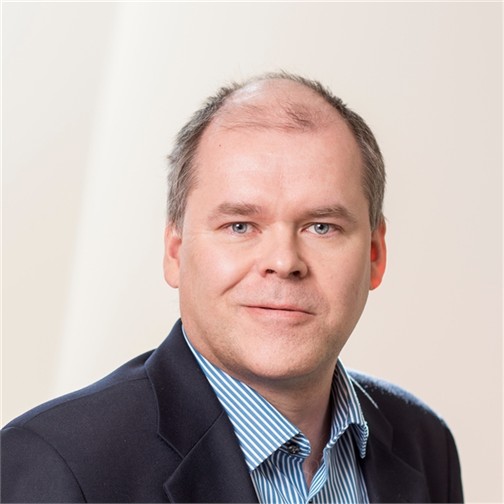MARSABIT
Climate Resilient Low Cost Buildings in Marsabit County
Project information
The project has ended.
The project, Climate Resilient Low Cost Buildings in Marsabit County, is funded by the Nordic Climate Facility (NCF) Grant funded by the Nordic Development Fund (NDF)
The aim of the project is to provide technical assistance and build capacity of the Marsabit County Government in Kenya to pilot building climate-smart and affordable houses. Partners involved in this project are Häme University of Applied Sciences ( HAMK ), Strathmore Energy Research Center ( SERC ) and the United Nations Human Settlement Program ( UN-Habitat ).
The project is funded by the Nordic Climate Facility ( NCF ) and the County Government of Marsabit ( CGM ).
Project’s overall objectives are:
- 100 affordable and sustainable housing units built,
- EE / RE technologies implemented in a fraction of the housing units,
- Energy consumption in construction of homes reduced by at least 40% in 100 housing units,
- Energy consumption in operation and maintenance of 100 housing units reduced by at least 60%,
- Reduced use and demand for water from mains supply by 60% in 100 housing units,
- Consumption of wood to heat water reduced by 100% in 100 housing units and 25% in new buildings at end of project,
- 25% of new buildings approved by the county (building permit delivered) with sustainable design at the end of the project. Proportion doubled after 3 years of conclusion on the project,
- Reduced use of charcoal and / or wood for cooking among the participants (400 families) and 100 housing units by 60%,
- Reduction on the use of firewood for cooking in urban areas by 20% after 3 years of completion of the project,
- Increased use of water saving technologies (water harvesting and water saving fittings) and adoption of EE and RE in the sector of construction in the county by 25% at the end of the project in new buildings,
- Green businesses increased by double (at least) by the end of the project,
- Access to affordable housing in the area increased by 20% by the end of the project.
Partners
Häme University of Applied Sciences (HAMK) is a multidisciplinary higher education institution located centrally in the most populated area of Southern Finland.
In this project HAMK acts as the administrative coordinator and is responsible for monitoring, evaluation and quality assurance. Information dissemination is done by all partners but coordinated by HAMK. HAMK provides technical advice on sustainable energy and energy efficiency in construction:
- Technical advice on sustainable building
- Sustainable building and energy trainings
- Support to Development of Manual and Technical Notes on Sustainable Building for Hot and Arid Areas
- Support to Development of Recommendations on Sustainable Building and Energy Efficiency in Building and Energy Regulations
- Evaluation of housing development project works
For more information visit the website: www.hamk.fi
Strathmore Energy Research Center (SERC) admistratively falls under the research division of Strathmore University. It was established in 2012 with the aim of carrying out high quality research, technical training as well as consulting services in the energy sector in Kenya. SERC has developed Synergic partnerships with developmental organizations, government institutions, private companies, research centers and other educational institutions.
SERC will be the local coordination agent for the project between HAMK, UN-HABITAT and the Marsabit County Government
- Devoping Business Models
- Scaling the project within the local Market
- Coordinating technical design of water / Sanitation and RE engineering
- Monitoring the progress of the project (quality assurance of the pilot houses)
- Developing renewable energy marketing plans for county governments to enable actualization of RE / EE business ventures
For more information visit the website: serc.strathmore.edu
The United Nations Human Settlements Program (UN-HABITAT) is the United Nations Agency for Human Settlements and Sustainable Development. It was established in 1978 after the first UN Conference on Human Settlements and Sustainable Urban Development (Habitat I) held in Vancouver, Canada in 1976. UN-HABITAT maintains its headquarters at the United Nations Office in Nairobi, Kenya.
UN-HABITAT’s Energy Unit has extensive experience in urban energy, and extracts lessons learned that can be adopted by other cities in planning for their sustainable energy and climate change mitigation and adaptation action plans. Vital intervention areas include the development of sustainable urban energy plans, strategies, policies and legislation in order to enable the gradual trasition to a low-carbon economy, with environmentally sound urban infrastructure and services. Other outputs include the development of awareness and capacity-building tools on planning sustainable urban energy.
UN-HABITAT’s role in this project includes missions such as:
- Technical advice on sustainable building
- Support to a sustainable building and energy trainings
- Development of Manual and technical notes on sustainable building in hot and arid areas
- Development of recommendations on sustainable building and energy efficiency in Building and Energy regulations
- Supervision of housing development project works
For more information visit the website: www.unhabitat.org
County Government of Marsabit (CGM) acts as an administrative body for the vast lands that cover area more than 70000 km2. After a new Kenyan Constitution was implemented in 2010 that had effecftively given more legistlative powers and rights to counties, the County Government of Marsabit is on the way to convert historically poor and troublesome town of Marsabit into a dynamically growing modern city.
Housing is a fully devolved function of the County Government as per the provisions of the Fouth Schedule of the Constitution of Kenya 2010. The Constitution obliges the government to take legislative policy and other measures including setting standards to achieve progressive realization of the right. Marsabit County Government Department of Housing Development os adequately staffed with a variety of expertise. Among them are physical Planners and Surveyors. The County aims to provide sustainable building models and introduce green building practices (sustainable building design with local building materials and clean energy technologies in the construction sector).
For more information visit the website: www.marsabit.go.ke
Contact information
